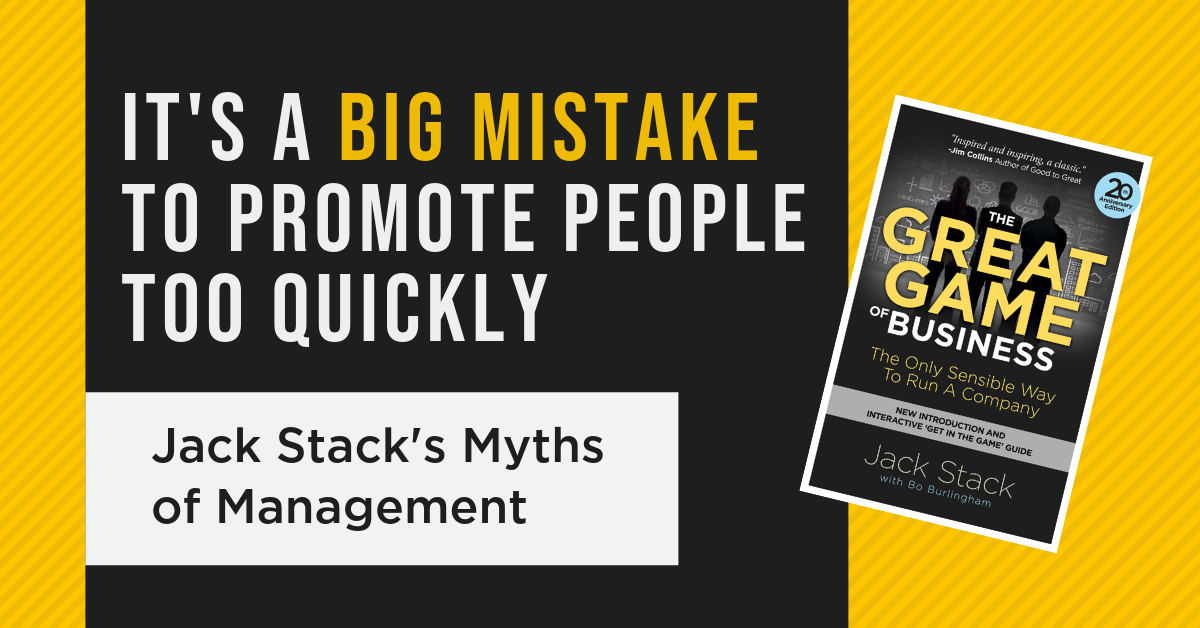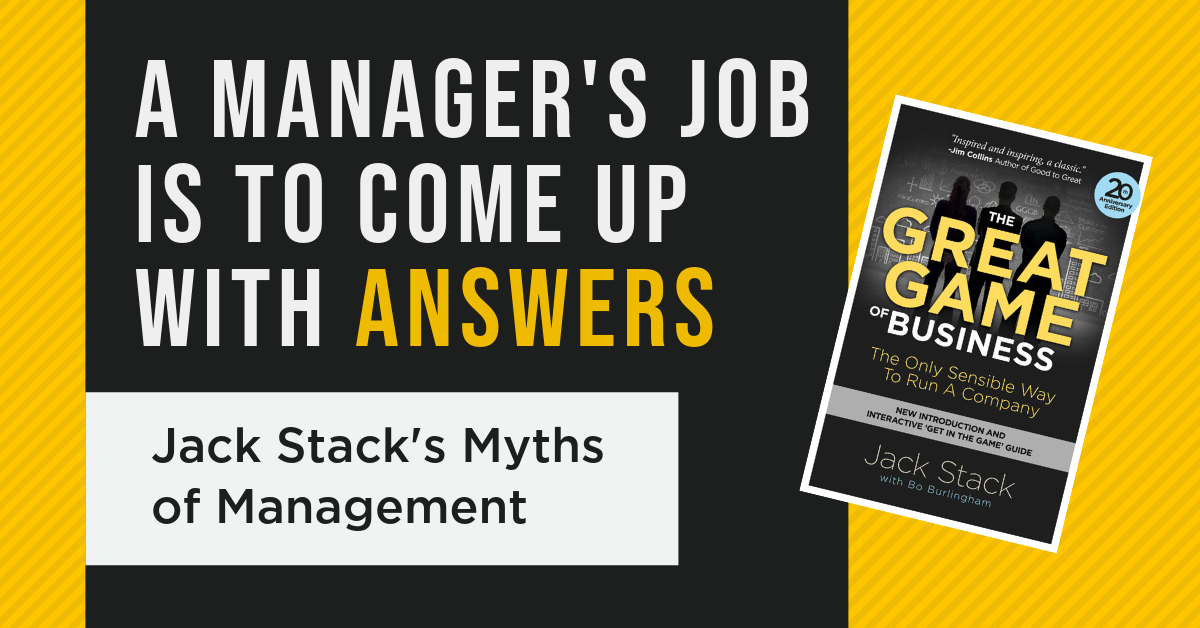You’ve likely experienced people who occupy leadership positions and people who are leaders. There’s quite a difference. People who only occupy the position use power to get what they think is needed. Their use of questions often includes blame or demands control. Perhaps you’ve heard this one: “Don’t you agree, or is there something you didn’t understand?” People who are true leaders do the opposite. They ask questions to get people thinking about and owning the results of their work and the collective results of the company.
Read More
We love to see and hear the inside stories of companies putting the principles and practices of The Great Game of Business® to work in their organizations. As we revealed at the 2018 Great Game of Business Conference, we have a goal to impact 10 million lives in the next 10 years in the #sharonthedream campaign. Here are three of our favorite videos representing three very different stories of how the Great Game has made a difference...
Read More
Are you ready to introduce Great Game™ to your employees? Reading the book as a group is a great way to establish the concepts of the Great Game of Business® with your staff, whether your company is new in implementing open-book management, introducing new hires to The Game, or refreshing your Great Game knowledge.
Read More
An open-door policy refers to the practice of business or organizational leaders leaving their doors open so that employees feel welcome to stop by and meet informally, ask questions, or discuss matters that have been weighing on their minds. These days, with open office environments, co-working spaces and remote team members working around the globe, the “open-door policy” is more metaphorical than ever before. The equivalent of walking through a physical open door in many organizations is now sending a text message, a direct message on Facebook or Slack, an instant message on Skype, or a ping on Basecamp. Regardless of whether the interruption is through an actual door or a digital door, the theory is that an organization uses such openness to build a culture of trust, collaboration, communication, and respect regardless of an individual’s position in the hierarchy.
Read More
As I was growing up on the shop floors of manufacturing plants, I was constantly bombarded with best practices that had names like total quality management, management by objectives and lean manufacturing. The idea was that the company’s management was trying to make us more productive and efficient. If one person could run a machine and still have time to stand around, we would give him two more machines to run. That was breakthrough thinking, essentially operating those two extra machines for free since we increased the productivity of this worker.
Read More
This is an employee engagement message from the heart. I’m doing my best to strip away HR-speak, academic jargon, and journalistic style in an attempt to actually reach crazy-busy front-line managers who’ve heard it all before. It’s my vain attempt to actually influence someone. Despite the best intentions of so many, the truth about employee engagement isn’t getting out. You need to understand…
Read More
Excerpted from The Great Game of Business. Like most American companies, International Harvester operated on the principle that everybody should focus on doing the specific job he or she was assigned. The corollary was that you should only give people the information required to do their specific jobs; everything else should be treated as some kind of corporate secret. Somehow it had become common wisdom that this was a good way to run a business—in fact, the only right way to run a business. That is the biggest myth of all.
Read More
From characteristics of successful GGOB practitioners, to forecasting tips, to biggest mistakes and how to avoid them, our Great Game™ coaches tackle these common issues in this segment of "Ask the Coaches."
Read More
Excerpted from The Great Game of Business. The common wisdom is that people should prove themselves before they get promoted. I always promoted people as fast as I could. Sometimes I promoted them right out of my department. I liked giving people opportunities, and I didn't want them to get bored and stale, but I had an ulterior motive as well: it made my job a lot easier to have friends all over the company.
Read More
Excerpted from The Great Game of Business. It's very common for managers, especially new managers, to think they're supposed to have solutions for any problems that arise on their watch. That kind of thinking can get you into deep trouble. For one thing, it sets you up to fail because no one has all the answers. For another, it undermines your credibility because everyone knows that no one has all the answers. It also isolates you from people. A big pitfall of managers at all levels is the notion they have to be perfect. I know supervisors who can't hold a meeting because they're afraid someone might ask a question they can't answer. As I mentioned earlier, I know CEOs who can't leave their offices unless their ties are straight and every hair is in place. Managers like that wind up hating their jobs. They feel they have to live up to an image, to be an idol, to be a representative of a position.
Read More

.png)

.png)

.png)

.png)
.png)
.png)







.png)




-5.png)

